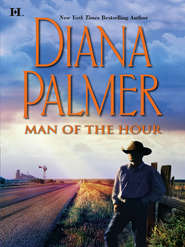По всем вопросам обращайтесь на: info@litportal.ru
(©) 2003-2024.
✖
Protector
Автор
Год написания книги
2018
Настройки чтения
Размер шрифта
Высота строк
Поля
“What?”
He sat down in the chair beside the bed and crossed his legs. “Okay, let’s review the mechanics of gunshot injuries. First is the direct tissue injury. Second, temporary cavitation as the projectile makes a path through the tissue and causes necrosis. Third, shock waves if the projectile is ejected at a high rate of speed. You are the luckiest man I know, because the only major damage the bullet did was to your lung. However,” he added quietly, “the damage is such that you’re going to have a hard time using your left arm for a while.”
“Awhile? How long a while?” Hayes asked.
“Micah Steele—remember him?—is our orthopedic surgeon. I called him in on your case. We removed the bone fragments and repaired the muscle damage...”
“What about the bullet?” Hayes interrupted. “Did you get that?”
“No,” Coltrain said. “Removing a bullet is up to the discretion of the surgeon, and I considered it too dangerous to take it out...”
“It’s evidence,” Hayes said as strongly as the weakness would allow. “You have to extract it so that I can use it to prosecute the...” He held his breath. “Guy who shot me!”
“Surgeon’s discretion,” Coltrain repeated. “I won’t risk a patient’s life trying to dig out a bullet that’s basically disinfected itself on the way into the body. I’d do more damage trying to get it out than I would leaving it in.” He held up a hand when Hayes opened his mouth. “I conferred with two other surgeons, one in San Antonio, and they’ll back me up. It was too risky.”
Hayes wanted to argue some more, but he was too tired. It was an old argument, anyway, trying to make a surgeon remove potential evidence from a victim’s body, and it occasionally ended up in a legal battle. Most of the time, the surgeon won. “All right.”
“Back to what I was saying,” he continued, “there was some collateral damage to your left shoulder. You’ll have to have an extended course of physical therapy to keep the muscles from atrophying.”
“Extended?” Hayes asked slowly.
“Probably several months. It depends on how quickly you heal and how fast your recovery is,” Coltrain said. “It’s still going to be a rough ride. You need to know that from the start.”
Hayes looked up at the ceiling. “Crackers and milk!” he muttered.
“You’ll be all right,” Coltrain assured him. “But for the next couple of weeks, you need to keep that arm immobilized and not lift anything heavier than a tissue. I’ll have my receptionist get you an appointment with Dr. Steele and also with the physiotherapist here in the hospital.”
“When can I go home?”
Coltrain stared at him. “Not for several more days. And even then, you can’t go home and stay by yourself. You’ll need someone with you for at least a couple of weeks, to make sure you don’t overdo and have a relapse.”
“A nursemaid? Me?” Hayes frowned. “I was out of the hospital in three or four days the last two times...”
“You had a flesh wound the last time, and the one before that you were only about twenty-seven years old. You’re thirty-four now, Hayes. It takes longer to recover, the older you get.”
Hayes felt worse than ever. “I can’t go home right away.”
“That’s right. You’re going to be extremely limited in what you can do for the next few weeks. You won’t be able to lift much while the damage heals and you’ll find even ordinary movement will aggravate the wound and cause pain. You’re going to need physical therapy three times a week...”
“No!”
“Yes, unless you want to be a one-armed man!” Coltrain said shortly. “Do you want to lose the use of your left arm?”
Hayes glared at him.
Coltrain glared right back.
Hayes backed down. He sank back onto the pillow. His blond-streaked brown hair was disheveled and needed washing. He felt dingy. His dark eyes were bloodshot and had dark circles around them. His lean face was drawn from pain.
“I could get somebody to stay with me,” he said after a minute.
“Name somebody.”
“Mrs. Mallard. She comes to take care of the house three days a week anyway.”
“Mrs. Mallard’s sister had a heart attack. She’s gone to Dallas. I’ll bet she phoned to tell you, but you never check your telephone messages at home,” Coltrain said with some amusement.
Hayes was disconcerted. “She’s a good woman. I hope her sister does well.” He pursed his lips. “Well, there’s Miss Bailey,” he began, naming a local woman who made her living from staying with recuperating patients. She was a retired practical nurse.
“Miss Bailey is terrified of reptiles,” he pointed out.
“Blanche Mallory,” he suggested, naming another elderly lady who sat with patients.
“Terrified of reptiles.”
“Damn!”
“I even asked old Mrs. Brewer for you,” Coltrain said heavily. “She said she wasn’t staying in any house with a dinosaur.”
“Andy’s an iguana. He’s a vegetarian. He doesn’t eat people!”
“There’s a young lady you dated once who might dispute that,” Coltrain said with a smile and twinkling eyes.
“It was self-defense. She tried to hit him with a lamp,” Hayes muttered.
“I recall treating her for a sprained ankle, at your expense,” the other man returned.
Hayes sighed. “Okay. Maybe one of my deputies could be persuaded,” he relented.
“Nope. I asked them, too.”
He glowered at Coltrain. “They like me.”
“Yes, they do,” he agreed. “But they’re all married with young families. Well, Zack Tallman isn’t, but he’s not staying with you, either. He says he needs to be able to concentrate while he’s working on your case. He doesn’t like cartoon movies,” he added, tongue-in-cheek.
“Animation bigot,” Hayes muttered.
“Of course, there’s MacCreedy...”
“No. Never! Don’t even speak his name, he might turn up here!” Hayes said with real feeling.
“He’s your cousin and he likes you.”
“Very distant cousin, and we’re not talking about him.”
“Okay. Suit yourself.”
“So I’m going to be stuck here until I get well?” Hayes asked miserably.











